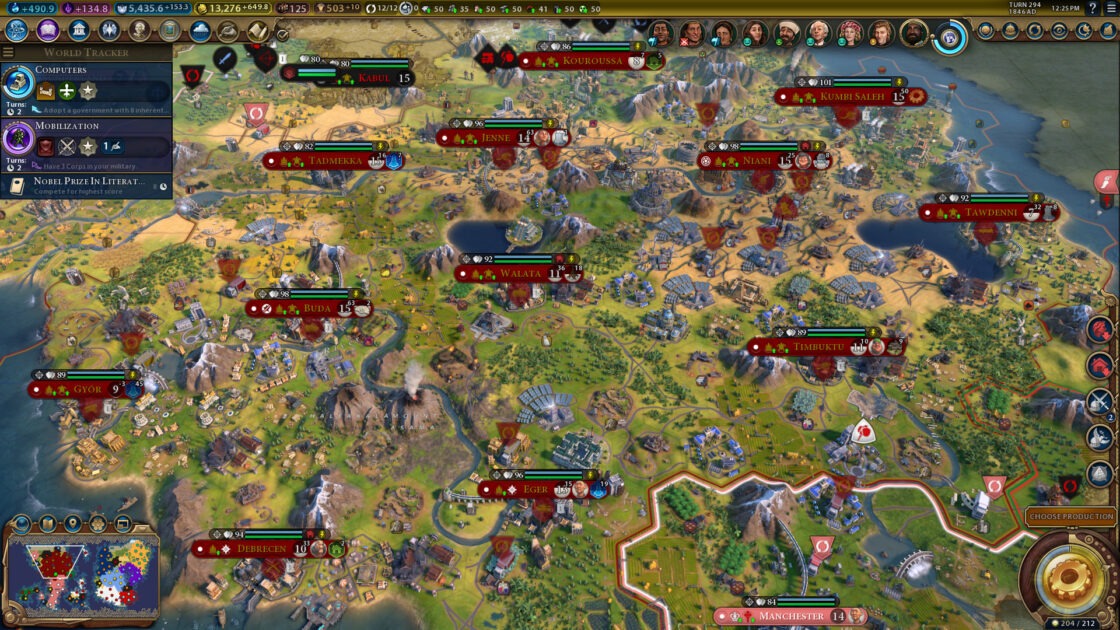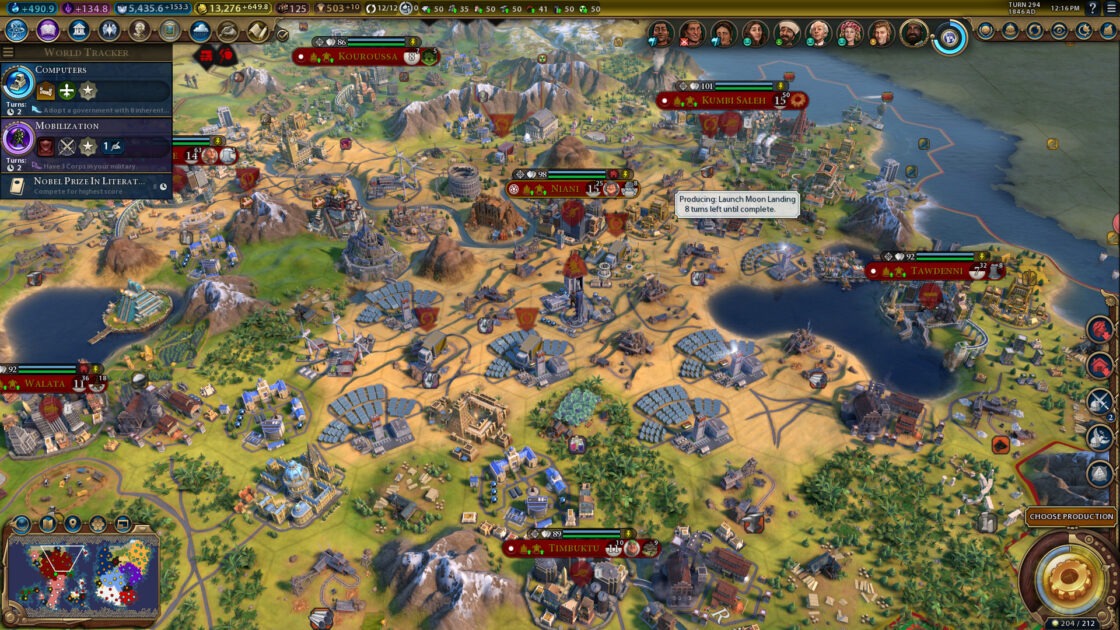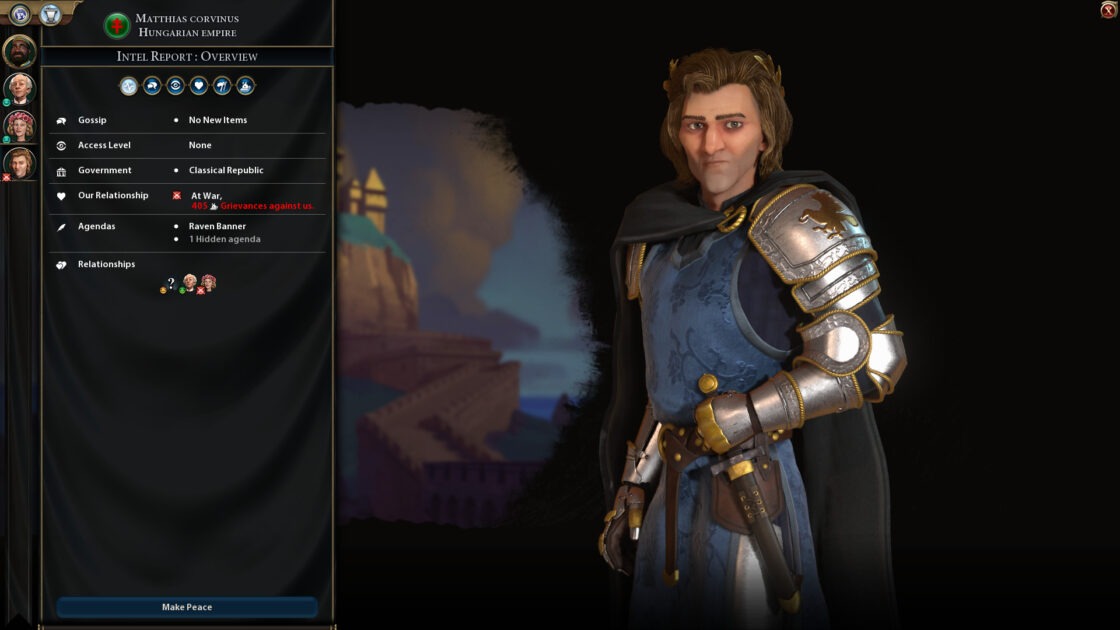Civilization VI is finally worth playing
Reading time: 5 minutesAs long as you’re willing to spend £109.97 on it
In its initial 2016 release, I considered Sid Meier’s Civilization VI to be a bad game. It was poorly designed, badly thought out, and had features that were poorly implemented. I disliked it so much in fact that I never even finished a single game of it. No matter how much I tried to give it a chance, I just couldn’t get past some of the awful developmental choices.
I was, however, intrigued at the announcement of Civ VI’s latest major expansion, Gathering Storm, and, after watching a lovely bunch of people play it, I thought it looked good enough to pick up again.

I should probably preface this article with a warning: I play Civ almost entirely single player so I will be talking about how the changes in the latest DLC affect the single-player campaign.
Perhaps the thing that bothered me most about the base game was that the AI was utterly impossible to work with. In the Civilization series, you play as the leader of a civilization (see what they did there?), vying for world dominance in one of several areas, against a whole host of interesting and unique AI leaders (or your friends, if your relationships can stand that particular test). But the AI leaders in base-game Civilization VI were a hateful bunch of arsehats, making diplomacy – a relatively large part of the game – rather pointless. Added to the fact the AI didn’t present any kind of challenge (pre-DLC, the game I got furthest in involved me destroying four other empires with only two early military units), it was almost a wonder they bothered to include it in the first place.
In Gathering Storm, things are looking a lot healthier. While still ludicrously underpowered on normal difficulty (my first game with the new DLC saw me launching a fully-functioning space programme in the 1800s, while the AI had just started tottering around with muskets), no longer does every AI player hate you for merely existing. You can now form relationships with the AI: friendships with your neighbour, who you have lived in peace with for generations; fierce rivalries with dickhead nations that send a single archer to attack you; and alliances that can make both players stronger.

This is helped largely by the removal of the war-weariness system from the base game. Your empire would become unhappy the longer you were at war (regardless of whether you were winning or losing) and AI leaders would hate you forever regardless of your reason for declaring war (“You took back that city that was once yours? Shame on you!”). Its replacement gives you points (now known as “grievances”) against other players if they are unfair to you. So, say someone declares a surprise war on you – you get a ton of grievances against them, can retaliate against them with a much smaller penalty, and the world at large doesn’t hate you for engaging in the war but hates the aggressor instead. And the same goes if you declare war – attack people for no reason too often, and AI empires can band together to try to take you down a peg or two.

But that’s not the only thing players can now team up for. With the introduction of natural disasters, global warming, and extreme weather in Gathering Storm, players can also support each other when ravaged by the world itself.
It is frankly unbelievable how alive the world of Gathering Storm feels. Rivers can (and often do) burst their banks, volcanoes now exist and can erupt at any time, providing both gains and losses to your empire, and polar ice caps can melt, causing sea levels can rise if you pump too much CO2 into the air. No longer are you free to burn coal and nuke people into dust without it having a long-lasting and significant impact on the way you play the rest of the game. Now, not only do you react to the world, deciding where to settle and which resources to harvest, but the world responds to you.

One area where Gathering Storm is a letdown, though, is the newly implemented World Congress system – sort of like an in-game version of the United Nations. While not perfect in the previous entry to the franchise, Civilization V, the implementation in Civ VI feels like the sort of idea that got brought up at the end of a team meeting and cobbled together in just a couple of hours. It makes little sense, doesn’t have a particularly significant impact on the game as a whole, and resolutions are seemingly often decided at random. I also love the fact that the World Congress can be started before all the players have met each other: even though you must surely speak to all leaders at the World Congress, those you have not yet encountered in the overworld are hidden from you and appear as question marks… I always get the image of someone sitting in the Congress too nervous to ask who all these other people are and, by the time a few generations have passed, it’s far too late to ask without seeming really stupid.
There is a whole host of other new features as well, including a somewhat randomised future tech tree, that contains powerful new technologies to unlock; interesting speciality districts (including canals, which are just fantastic fun); and a notable amount of graphical improvements that make the game world seem just that little bit more alive.
All in all, with its two big expansions (Rise and Fall and Gathering Storm), Civilization VI seems to finally be coming up to the standard that Civilization V achieved in its early days. At last, it’s a good, enjoyable game that I can genuinely say deserves the tag line “Just One More Turn”. It’s just a shame that it’s taken two expansions and a whopping total price for it to come even close to being a good game.

The price in the headline refers to the base game at £49.99, plus the Rise and Fall and Gathering Storm DLCs at £24.99 and £34.99 respectively. Not included are the additional DLCs worth £34.94 – so you could spend £144.91 if you really wanted to. Prices correct at time of publication.

